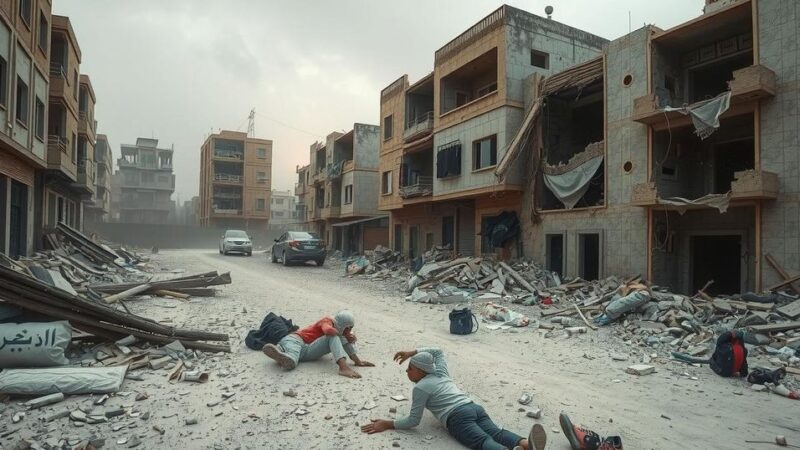The devastating earthquake in Myanmar and Thailand resulted in significant casualties, with the death toll reaching 1,644 and thousands injured. While many view earthquakes as random natural events, Jewish sages interpret them as divine messages urging introspection and spiritual renewal. Historical examples and interpretations by revered figures such as the Chofetz Chaim, Rabbeinu Chananel, and the Maharal emphasize the importance of responding to such tragedies with faith and resilience.
The recent earthquake in Myanmar, which registered a magnitude of 7.7, has resulted in a tragic death toll of 1,644, significantly increasing from the initially reported 1,002. The injured count has risen to 3,408, and there are 139 people reported missing. In Thailand, the death toll stands at 10, with thousands suffering injuries. This disaster underscores the challenge of accurately confirming casualties across vast regions, with numbers potentially continuing to rise as recovery efforts unfold.
Many perceive earthquakes as mere natural events caused by the random movements of Earth’s tectonic plates. Such individuals view the release of energy during an earthquake as devoid of deeper significance, regarding it as mere natural phenomena. However, the sages of Israel interpret these occurrences as possessing profound messages that warrant our reflection and introspection.
A historical example cited is the earthquake that struck Japan’s Kanto plain on September 1, 1923, coinciding with the Jewish calendar date of Elul 20. This catastrophe decimated Tokyo and its surrounding areas, causing over 100,000 fatalities. The Chofetz Chaim, upon learning of this disaster, fasted and called for communal repentance, indicating the spiritual implications of such tragic events.
The Gemorah in Brachos 59b elaborates on the significance of earthquakes, exemplified through Rav Katina’s narrative. He recounts a moment when he encountered a sorcerer who, upon seeing an earthquake occur, articulated that such events stem from divine remembrances of the suffering of His people, emphasizing an emotional connection between the divine and earthly events.
Rabbeinu Chananel offers an alternative perspective, attributing earthquakes to divine frustration over the treatment of the Jewish people, reminding them of God’s perpetual presence and care. This interpretation reinforces the notion that such calamities are not punitive but serve as a call for resilience and rededication to faith.
The Maharal elucidates that natural phenomena, including earthquakes, are manifestations of divine will, not mere random occurrences. He argues that these events reflect our disconnection from our spiritual purpose and serve as a reminder of the potentiality of Israel’s divinely mandated role in the world.
Thus, the earthquake’s message is twofold: it urges a yearning for a return to spiritual greatness and offers reassurance of God’s unwavering concern for the Jewish people. This interpretation inspires hope and implies a necessary transition towards active spiritual engagement.
In conclusion, the earthquake serves as a poignant reminder of our collective responsibility to strive for a higher calling. The interpretations provided by the sages emphasize the importance of resilience and faith, especially during times of crisis. This message resonates profoundly within the Jewish community, particularly in the context of current challenges faced by their people. May we take to heart the lessons imparted by this seismic event, seeking to embody the values of perseverance and devotion in the midst of adversity.
In summary, the earthquake in Myanmar and Thailand highlights the tragic impact on human life while serving as a potent reminder of the need for spiritual introspection. The sages of Israel provide a framework for understanding such disasters not merely as random occurrences but as profound messages from the Divine. This dual message of hope and a call to spiritual awakening inspires the Jewish community to strive for a renewed connection to their faith and responsibilities. Amidst adversity, the encouragement to foster resilience and strengthen communal bonds is more crucial than ever.
Original Source: vinnews.com






